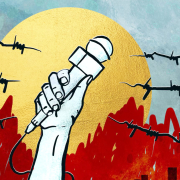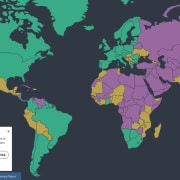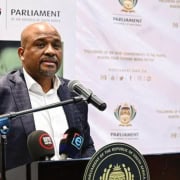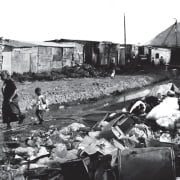|
Getting your Trinity Audio player ready...
|
There is reportedly a looming boycott of the May elections by residents of the area of Komani in the Eastern Cape due to their displeasure with poor service delivery. The communities there are serviced by the Enoch Mgijima Local Municipality, which is currently under national administration and named among the worst performing municipalities by the auditor-general in her most recent local government report. Residents have reportedly been without a consistent supply of water and electricity for an extended period, and the debt to power utility Eskom stands at about R1-billion.
Their concerns are legitimate, and quite relatable to millions of other South Africans across the country. Government systems that should provide us basic services are gradually collapsing, with very little accountability for those in charge, while local authorities are either overwhelmed or caught up in coalition politics disorder. Basic services like water, electricity and waste management are increasingly harder to come by than before, and are among those frequently recorded as concerns – while on the other hand metro municipalities are embroiled in the messy politics of coalitions.
It is almost always expected that elections will be preceded by community protests highlighting failures in governance of one type or another. Understandably, protests have become the way in which communities voice their dissatisfaction, seeking accountability and amends for being shortchanged by those elected to uphold the most basic tenets of the Constitution, the governance of which are owed to citizens equally.
It follows then, that conversations around the celebration of Freedom Day, its meaning, and the general concept of freedom in our democracy will always be connected to the self-realisation of citizens and their ability to choose their means of seeking accountability. And what better way to effect that, than to show up to vote?
Show up and vote
This year in particular, on the 30th anniversary of South Africa’s first democratic elections, no-one needs that self-realisation more than those who make it to the polls in these very important elections. We are a nation of people dejected and in the throes of high levels of crime, corruption and a negative outlook regarding our economy and the ripple effect on the cost of living.
Voters are also the ones inevitably charged with making a difference in the inevitable act of active citizenry that is needed at this time. We are not, and should not be, in business-as-usual mode, and our freedoms – though different and unequal from each social class to the next – deserve us to fight for them. For what it’s worth, our lived reality as South Africans is that we are far from the ideals of 1994, which promised prosperity – albeit at a measured pace, and with numerous sacrifices.
Most importantly, we are a country with a constitution that is meant to empower us, particularly in terms of our socio-economic rights, despite the fact that the principles are not always realised. We hold power as citizens in the votes we cast every five years, either for change in leadership, or to endorse those in power that we view as having advanced these principles.
This Freedom Day, as we reflect on what our individual take is on freedom and if we indeed identify as free, let us also work towards the positive change that we want for ourselves.
The people of Komani, and indeed many other areas in the country that find themselves in the same situation, may be within their right to respond to the current crisis by electing to boycott the polls, but to do so is a disservice to themselves. The freedom to choose who is in charge of providing the services that hinder development in your community is the freedom that should inspire the change in landscape that we desperately need.








